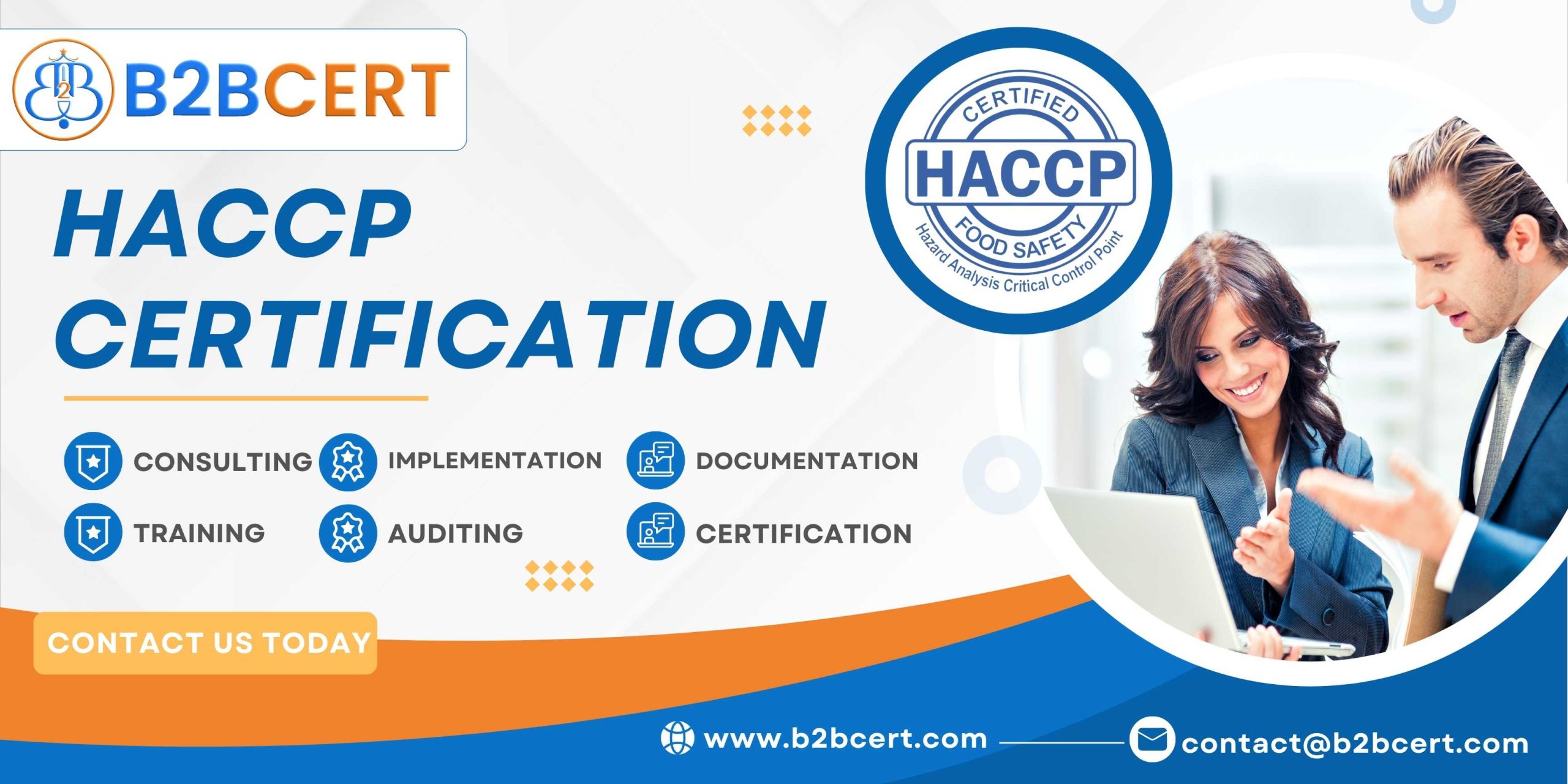
In today’s competitive market, businesses that prioritize safety and quality are more likely to earn the trust of customers, suppliers, and regulatory authorities. One such certification that enhances business reputation is the Hazard Analysis and Critical Control Points (HACCP) certification. It is especially important for businesses operating in the food industry. If you are based in Dubai or looking to expand your food-related business into international markets, obtaining HACCP certification is essential for your success.
What is HACCP Certification?
HACCP Certification in Dubai is a globally recognized food safety management system designed to identify, evaluate, and control potential hazards that can compromise food safety. The certification ensures that businesses in the food industry are following strict standards to provide safe products to consumers. Achieving HACCP certification demonstrates that a company has implemented a systematic approach to ensure food safety from the production line to the consumer’s table.
Why HACCP Certification is Important for Your Business?
-
Builds Customer Trust: HACCP certification assures your customers that your products meet international safety standards. This builds consumer confidence in your brand and products, making it easier to retain customers and attract new ones.
-
Enhances Business Reputation: A certified HACCP system helps to reinforce your company’s commitment to quality and safety. It shows that you prioritize the health of your consumers and are committed to maintaining the highest standards.
-
Boosts Export Opportunities: Many international markets require food products to meet HACCP standards before allowing imports. Having HACCP certification from a recognized body, like b2bcert, opens doors to global export opportunities and ensures your products are accepted in foreign markets.
-
Compliance with Regulatory Requirements: In many regions, including Dubai and the UAE, food safety regulations are becoming stricter. HACCP certification ensures compliance with local and international regulations, reducing the risk of legal issues and penalties.
How HACCP Certification Can Help Your Business Grow in Dubai?
Dubai, a major hub for food trade, is home to diverse consumer preferences and stringent food safety regulations. For businesses aiming to thrive in this market, HACCP Implementation in Dubai is not just a competitive advantage but often a necessity.
By obtaining HACCP certification, your business will be able to:
- Stand out in the competitive market by showcasing your commitment to high-quality standards.
- Meet the stringent food safety regulations imposed by Dubai authorities and ensure your operations are in line with local laws.
- Improve operational efficiency by identifying and eliminating potential hazards early in the food production process.
Step-by-Step: How to Achieve HACCP Certification from b2bcert for Export Success
Achieving HACCP certification involves a systematic approach, which can be efficiently managed through the support of a recognized certification body like b2bcert. Below is a simple step-by-step guide to achieving HACCP certification.
1. Understand the Requirements:
Before beginning the certification process, it is essential to understand the HACCP principles. These seven principles form the foundation of the certification:
- Conduct a hazard analysis.
- Identify critical control points (CCPs).
- Establish critical limits for each CCP.
- Establish monitoring procedures.
- Establish corrective actions.
- Establish verification procedures.
- Establish documentation and record-keeping.
2. Establish a HACCP Team:
A team should be formed that includes individuals with knowledge of your business operations, food safety, and quality control. This team will be responsible for developing and maintaining the HACCP system.
3. Conduct a Risk Assessment:
The HACCP team needs to assess the entire production process and identify potential food safety hazards. These could be biological, chemical, or physical hazards that could occur at any stage of production.
4. Implement Control Measures:
Once hazards are identified, the team must determine critical control points (CCPs) where controls are essential to prevent or eliminate risks. These control points should be monitored continuously to ensure food safety.
5. Develop Documentation and Record-Keeping Systems:
HACCP requires comprehensive documentation and record-keeping to track all processes, decisions, and control measures. These records are essential for audits and regulatory inspections.
6. Work with a Certification Body like b2bcert:
After implementing the HACCP system, the next step is to engage a certification body like b2bcert for an official audit. The certification body will assess your system, ensuring compliance with HACCP Consultants in Dubai. Once the audit is complete, and the system passes, you will receive your certification.
7. Continuous Monitoring and Improvement:
HACCP is an ongoing process. Even after certification, businesses must continually monitor and improve their food safety management systems to ensure consistent quality and compliance with evolving regulations.
What Sets b2bcert Apart?
b2bcert is a recognized certification body known for its expertise and efficiency in certifying food businesses worldwide. Here are some key benefits of choosing b2bcert for your HACCP certification:
- Expert Guidance: b2bcert provides professional support throughout the certification process, ensuring that your company meets all HACCP requirements.
- Global Recognition: b2bcert offers certifications that are recognized internationally, making it easier for your business to expand into global markets.
- Comprehensive Support: From documentation to training and audit preparation, b2bcert provides end-to-end support to help you successfully implement and maintain your HACCP system.





Leave a Reply